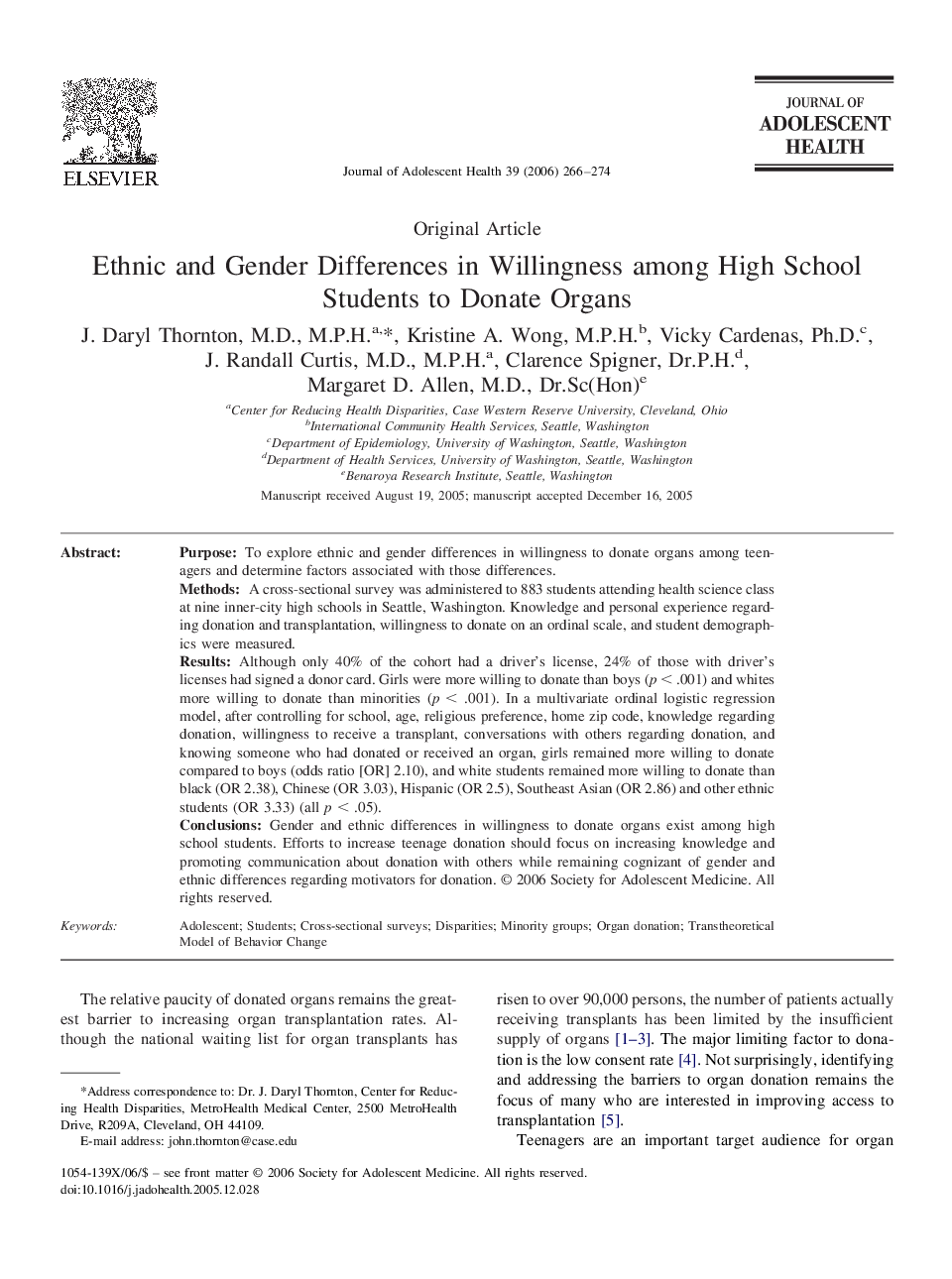| Article ID | Journal | Published Year | Pages | File Type |
|---|---|---|---|---|
| 1081706 | Journal of Adolescent Health | 2006 | 9 Pages |
PurposeTo explore ethnic and gender differences in willingness to donate organs among teenagers and determine factors associated with those differences.MethodsA cross-sectional survey was administered to 883 students attending health science class at nine inner-city high schools in Seattle, Washington. Knowledge and personal experience regarding donation and transplantation, willingness to donate on an ordinal scale, and student demographics were measured.ResultsAlthough only 40% of the cohort had a driver’s license, 24% of those with driver’s licenses had signed a donor card. Girls were more willing to donate than boys (p < .001) and whites more willing to donate than minorities (p < .001). In a multivariate ordinal logistic regression model, after controlling for school, age, religious preference, home zip code, knowledge regarding donation, willingness to receive a transplant, conversations with others regarding donation, and knowing someone who had donated or received an organ, girls remained more willing to donate compared to boys (odds ratio [OR] 2.10), and white students remained more willing to donate than black (OR 2.38), Chinese (OR 3.03), Hispanic (OR 2.5), Southeast Asian (OR 2.86) and other ethnic students (OR 3.33) (all p < .05).ConclusionsGender and ethnic differences in willingness to donate organs exist among high school students. Efforts to increase teenage donation should focus on increasing knowledge and promoting communication about donation with others while remaining cognizant of gender and ethnic differences regarding motivators for donation.
